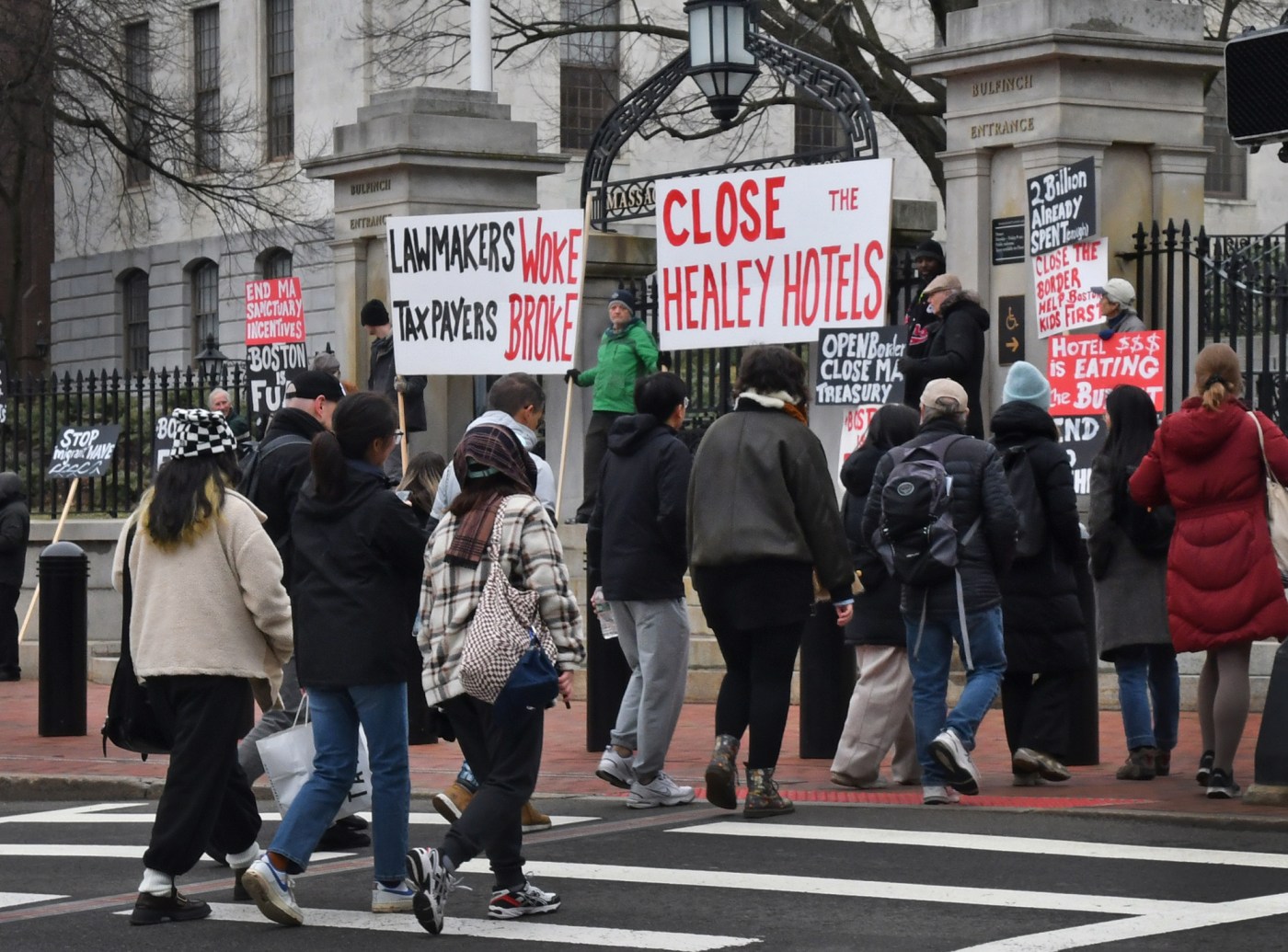
Tate: Migrants stay, Massachusetts families pay
Imagine waking up early five days a week to drive an hour to work, through traffic, and still barely making enough money to raise your family. And then imagine being sneered at by your state and local leaders as they tax a significant portion of your hard-earned paycheck, only to use your money to subsidize meals, housing, and other handouts for illegal immigrants coming to your city by the planeload.
Hardworking Bostonians don’t have to imagine that scenario. It is their reality.
State and city officials have prioritized the wants and needs of “undocumented” migrants before the basic needs of their own citizens. It’s a seemingly endless cycle, where citizens work to pay for migrants, which then inspires more illegal immigrants to come here. The more the cycle perpetuates, the higher demands in taxes, budget cuts, and debt arrive at our doorstep.
The cost of the migrant crisis in Massachusetts is rapidly approaching $1 billion. The state is spending tens of millions on meals and housing for migrants — many of whom have no ties to the Boston area — while hardworking local families struggle to afford rent or groceries.
The average apartment in Boston is nearly $3,400 per month, and families with children who need more than two bedrooms face far higher price tags. Want to purchase a house? Increased demand for housing and high taxes in the state have made the ultimate marker of the “American dream” completely out of reach for those pulling in an average salary. The median listing home price in Boston is $960K, and housing in the surrounding suburbs is similarly exorbitant.
Meanwhile, most newly arrived migrants live in Boston rent-free. Earlier this year the state declared that a former facility for veterans would be used to house migrants. The decision to use the Veterans Home at Chelsea as a “safety-net site” is just the latest slap in the face of hardworking Massachusetts citizens. It follows the January decision to move migrants into Roxbury’s Melnea Cass Recreation Center, a building meant to benefit local families.
March’s plan saw $10.5 million launched to move 400 migrant families out of shelters and into apartments. Taxpayers get to pay their own high rents and cover rent for migrants as well. And the migrants who move into apartments, or who leave shelters to find a place on their own, are taking a bite out of the already-limited supply of apartments and housing, driving up prices even further.
Housing is only one of the immigrant-related costs racked up by the state and city. While food prices increased in Massachusetts by almost 7% last year, the state is providing no-bid contracts for shelter, healthcare, and food costs for migrants. Boston should learn from New York City, which currently spends $387 per migrant per day for food and shelter costs. How many people do you know earn almost $400 per day after taxes?
The migrant crisis is also impacting hospitals, which are now under severe strain, and schools, who are adding migrant children to the rolls. Many will require 13 years of education, as well as English as a Second Language programs. Taxpayers will cover the costs.
Then there’s the crime factor, including the alleged rape of a disabled 15-year-old girl by a Haitian migrant in Rockland. The state’s response? The alleged crime is another example of “exactly why the federal government needs to act.” Not to report migrants to DHS for deportation, but instead to offer more money and work permits.
None of this is sustainable. The state is already spending $75 million a month on state-run housing as expenditures grow dramatically. This fiscal year’s budget already enables the governor to spend nearly $600 million on shelters with hundreds of millions more for health care and transportation.
Something’s gotta give.
Boston may ultimately follow a path similar to that of New York City, involving budget cuts and the potential for significantly higher taxes. But even these measures are mere Band-Aids if migrants are allowed to continue arriving by the thousands. If the flow of migrants is not stopped, the resulting costs, taxes, and crime could spark a renewed flight from the Boston area.
When Franklin Roosevelt ran for president in 1932, he highlighted the role of the “forgotten man,” left behind in the dramatic events of the Great Depression. The same could be said of the forgotten man and woman of Boston, who have seen their buildings turned over, their paychecks squeezed, and their city hobbled by the pressure of the current migrant wave.
FDR’s message resonated with Massachusetts voters, who put the state in the Democratic column for the third time in its history. When people feel that they’re being taken advantage of, they often change their voting habits dramatically, leave, or both.
Boston probably won’t vote for Donald Trump in November, or maybe a Republican for decades, but if city and state officials allow the current trends to get worse, don’t be surprised if the Boston of a decade from now is a much worse place to live and raise a family. And when that happens, don’t say that the forgotten man of the city didn’t tell you.
Kristin Tate is a political columnist and author based in Massachusetts. Her latest book is “The Liberal Invasion of Red State America.” Follow her on X @KristinBTate.


